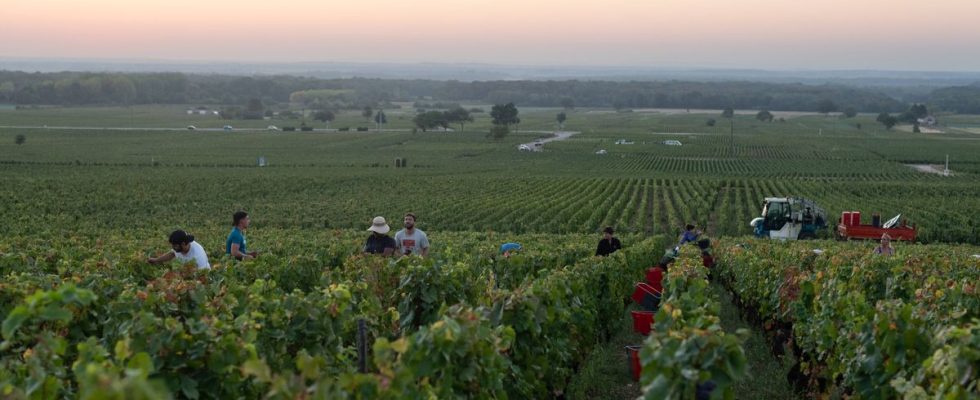EU policy on viticulture has “like cork taint”. The European Court of Auditors estimated this Monday that, in this area, environmental requirements are very insufficient. With its 2.2 million farms, the EU represents 59% of global wine production.
As part of its Common Agricultural Policy (CAP), the EU paid some 500 million euros per year to its wine growers between 2014 and 2023 to enable them “to restructure vineyards and strengthen their competitiveness”. The results were inconclusive, estimate the Court’s experts after an audit carried out in France (Rhône valley, Provence), Italy, Spain, Czech Republic and Greece.
Absence of competitiveness criteria
The projects were financed “irrespective of their content or degree of ambition, without taking into account the criteria aimed at promoting competitiveness”, leading to financing “non-structural changes or even the normal replacement of vineyards”, normally not eligible.
In addition, since 2016, wine growers have had the possibility of requesting authorization to plant additional vines, to increase their production area (by 1% per year maximum) while avoiding any excess supply: a regulatory framework adopted “without analysis for check if it was relevant”… and again without conditioning the green lights on competitiveness criteria. Above all, the Luxembourg-based institution criticizes the lack of environmental ambition, largely absent from the “restructuring” policy promoted by Brussels.
Red and white wine but “rarely green”
“Wine can be red, white or rosé, but its production method is rarely green (…) In practice, European aid has not gone to projects making it possible to reduce the impact of viticulture on the climate and the environment” and worse, “can produce the opposite effect by favoring grape varieties that use more water,” the Court is alarmed.
Thus, the annual increase of “1% maximum” of vineyard surfaces, a measure extended for an additional period of 15 years (until 2045), “has never been evaluated from an environmental point of view”, she emphasizes. The new CAP, which has applied since January, still does not set any environmental criteria for financing restructuring, and the Twenty-Seven are only required to devote 5% of the funds allocated to the wine sector to adaptation to climate change. , a “surprisingly low” rate, the report warns.

